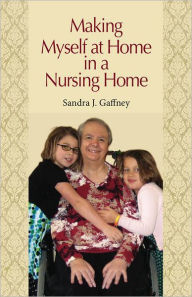
- Browse Category
Subjects
 We Begin at the EndLearn More
We Begin at the EndLearn More - Choice Picks
- Top 100 Free Books
- Blog
- Recently Added
- Submit your eBook
password reset instructions

For more than 250 years New Orleans'' Charity Hospital has struggled to serve the city''s indigent ill, and in so doing has become an institution steeped in Louisiana history and politics. In this fascinating new book John Salvaggio traces the colorful history of Charity Hospital from the early days of French colonial medicine through the Spanish period, the early American years, the volatile Huey Long and World War II eras, and the modern postwar period.Established in 1736, with the legacy of a compassionate French ship builder, Charity Hospital has weathered many storms to maintain its status as the oldest continually operating hospital in the United States. It has withstood the transfer of Louisiana territory from the French to the Spanish and survived devastating hurricanes and a fire. The institution has also endured the stormy beginnings of Louisiana statehood, the hardships of the Civil War, and more recently, the stresses of caring for an ever-expanding patient load. Throughout much of its history, Charity Hospital has encountered political squabbles, patronage problems, and financial woes. As a new century approaches, the hospital finds its future threatened by inadequate funding and the crumbling of its physical facilities.Despite many setbacks, Charity Hospital has accomplished much in its history. Salvaggio presents a summary of the many medical procedures, diagnostic techniques, and therapeutic innovations that have been introduced at the "Big Free," as the hospital is popularly known. He also provides previously unchronicled information on the hospital''s history during the twentieth century, writing about political infighting during the governorship of Huey P. Long, construction of a new hospital building in the 1930s, integration of the hospital in the 1960s, its relationships with the medical schools of Louisiana State University and Tulane University, and the current frustrating attempts to adequately staff the institution.Interviews with many of Charity''s past directors and others associated with the hospital, as well as lively anecdotes from the author''s own experience, bring the hospital''s history to life and provide valuable insight into the institution''s inner workings. These reminiscences, coupled with Salvaggio''s depiction of Charity''s past, present, and now questionable future, make this a fascinating and informative work on an important hospital of the South.
Less- File size
- Print pages
- Publisher
- Publication date
- Language
- ISBN
- 9.33x6.34x1.35inches
- 424
- LSU Press
- November 1, 1992
- English
- 9780807116135




























